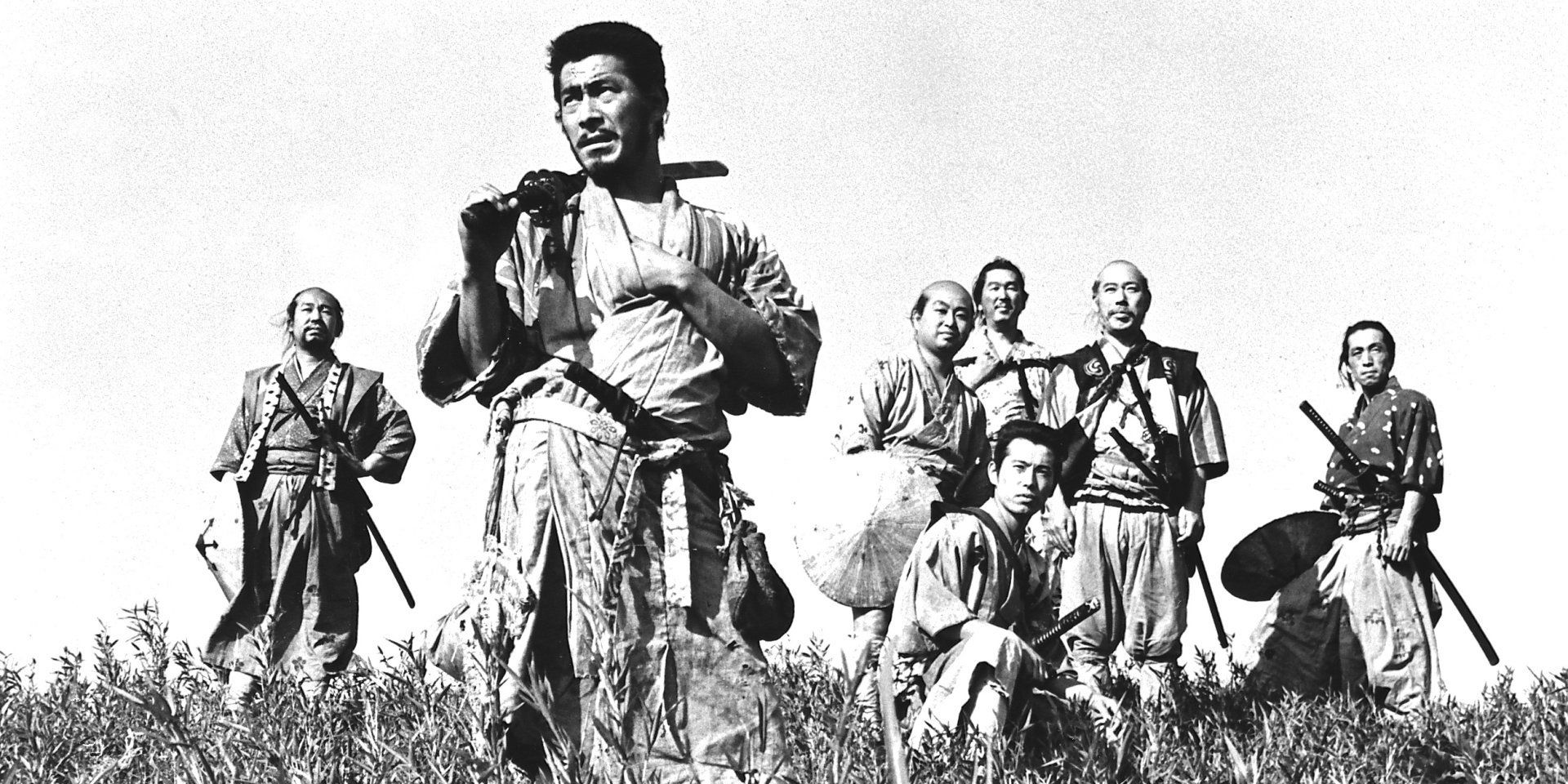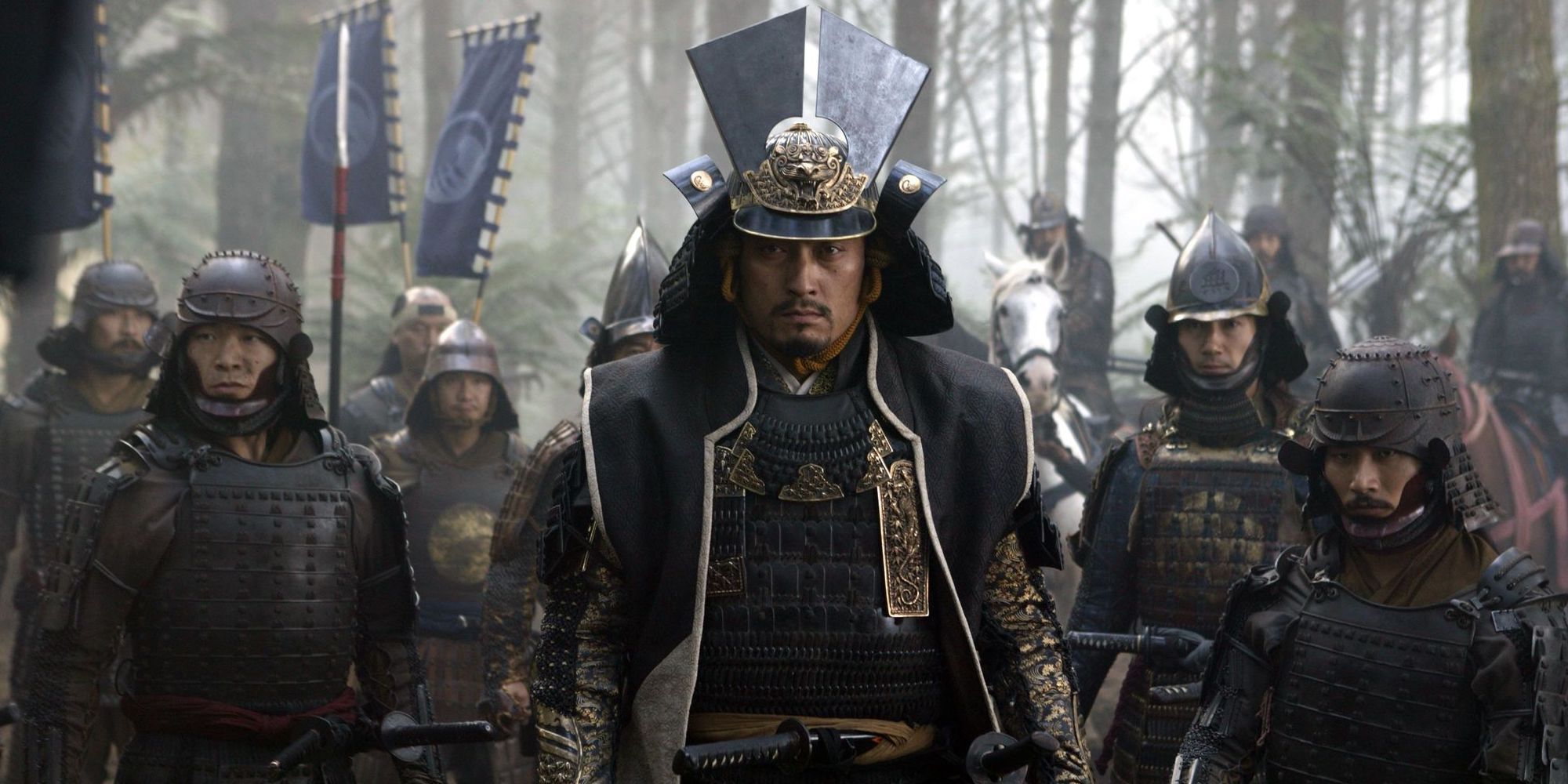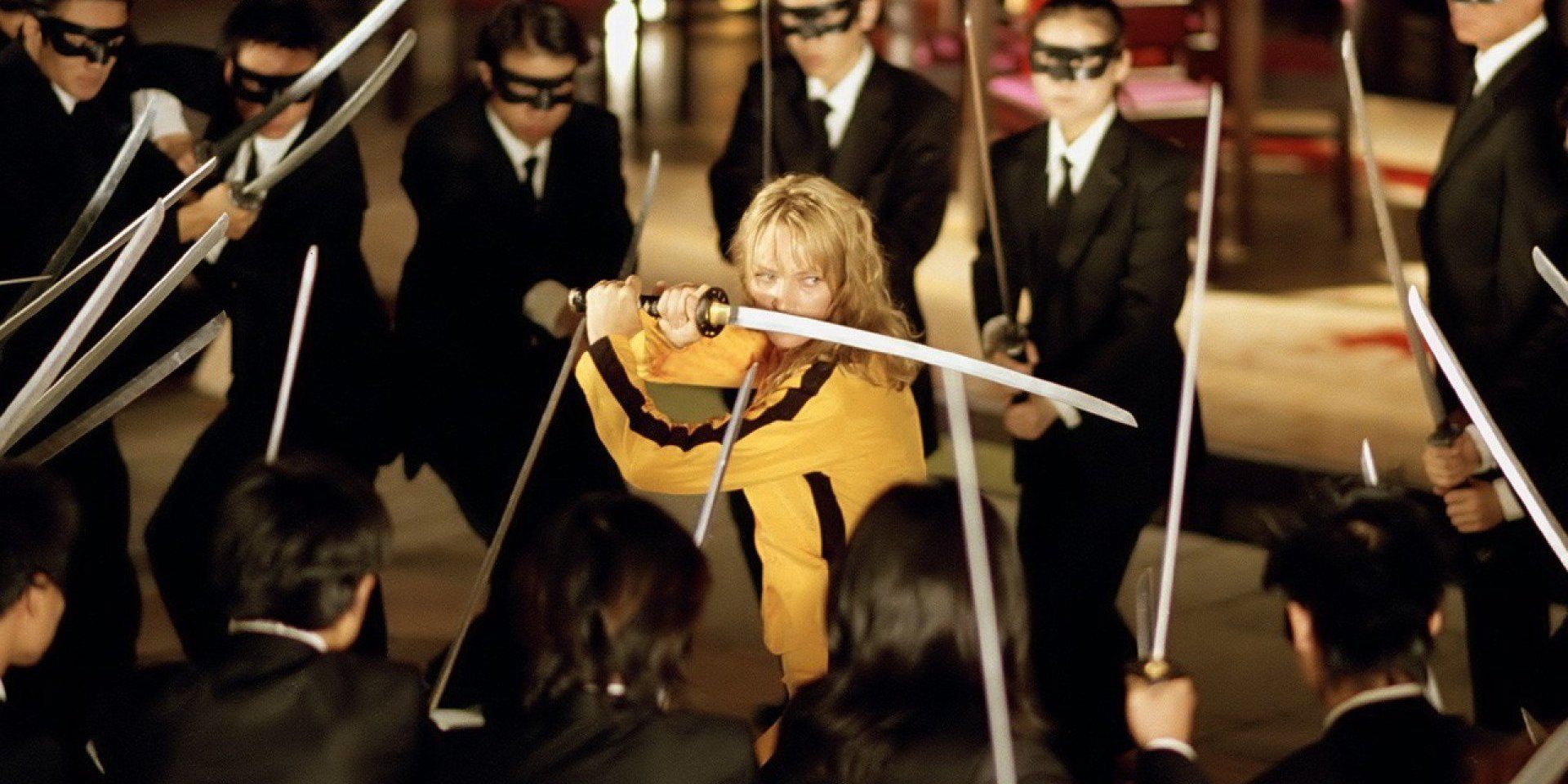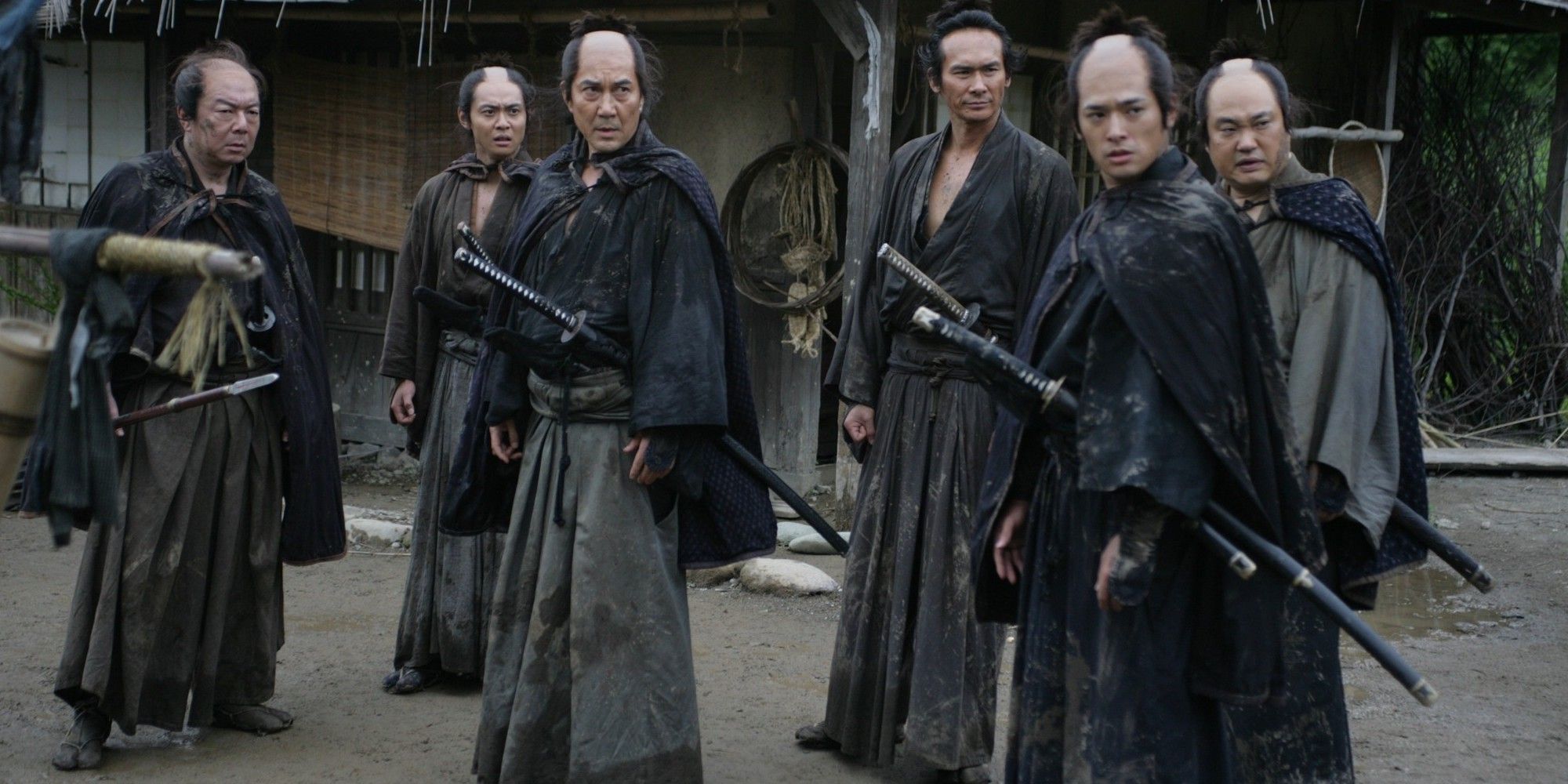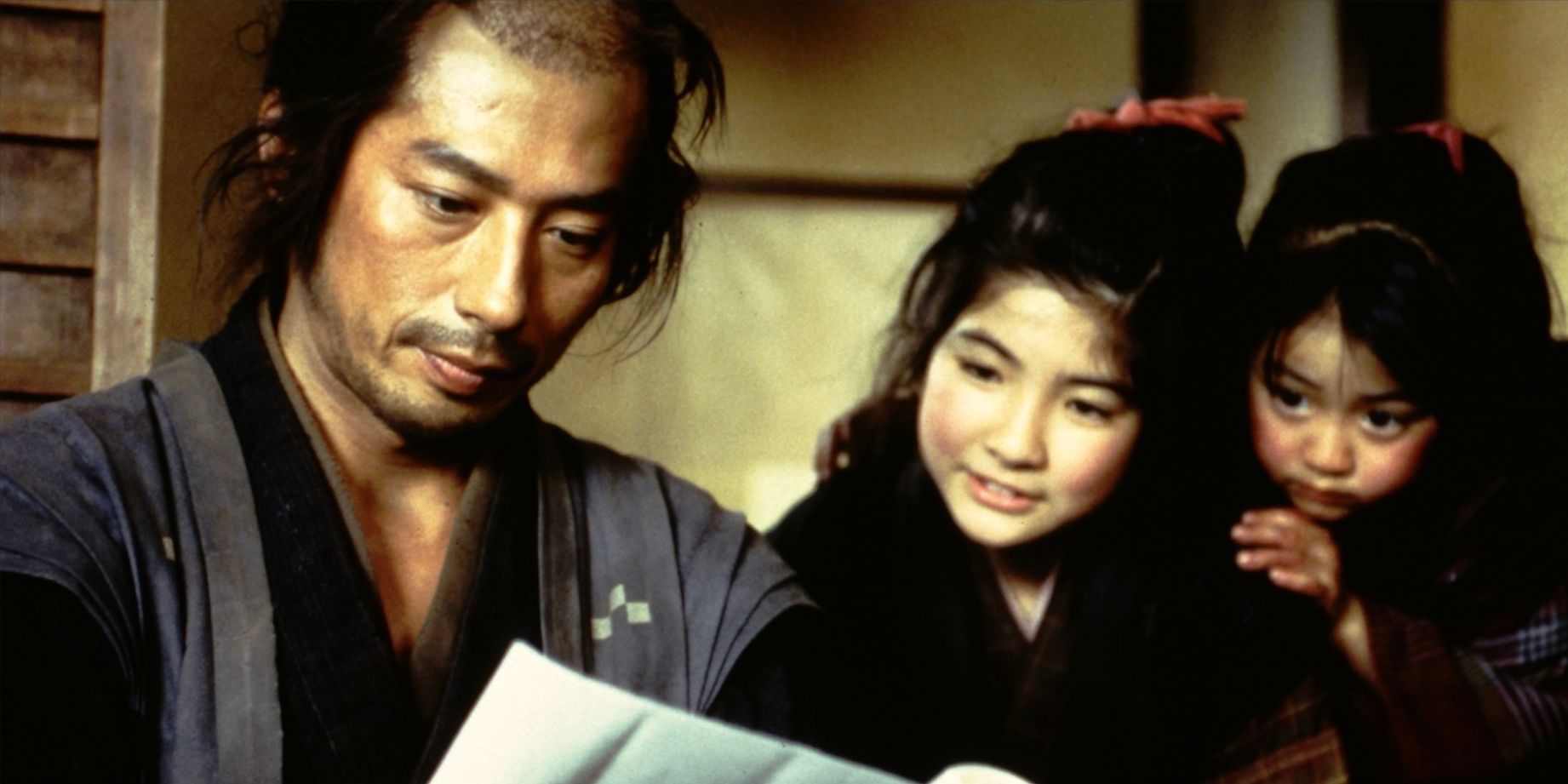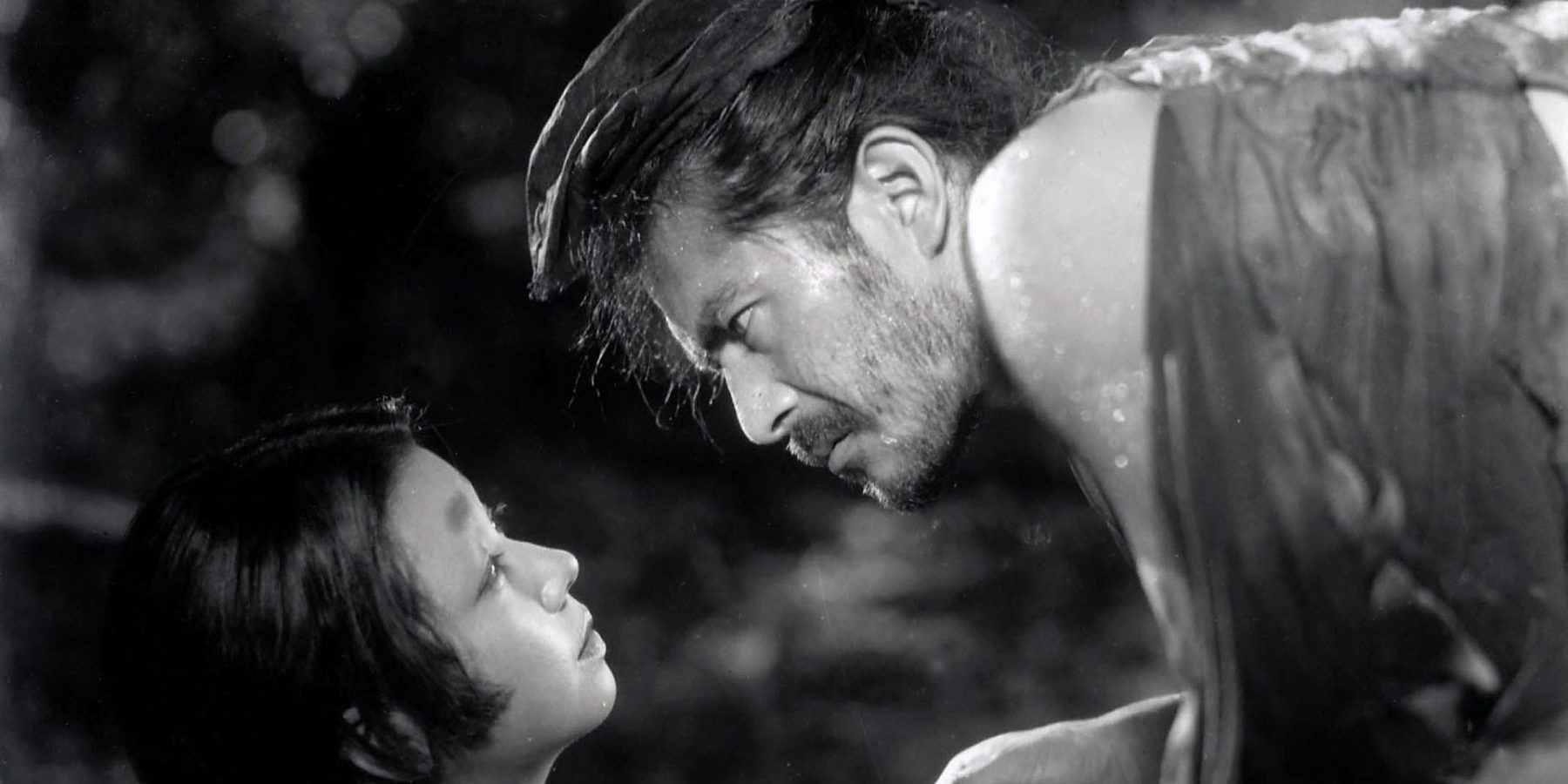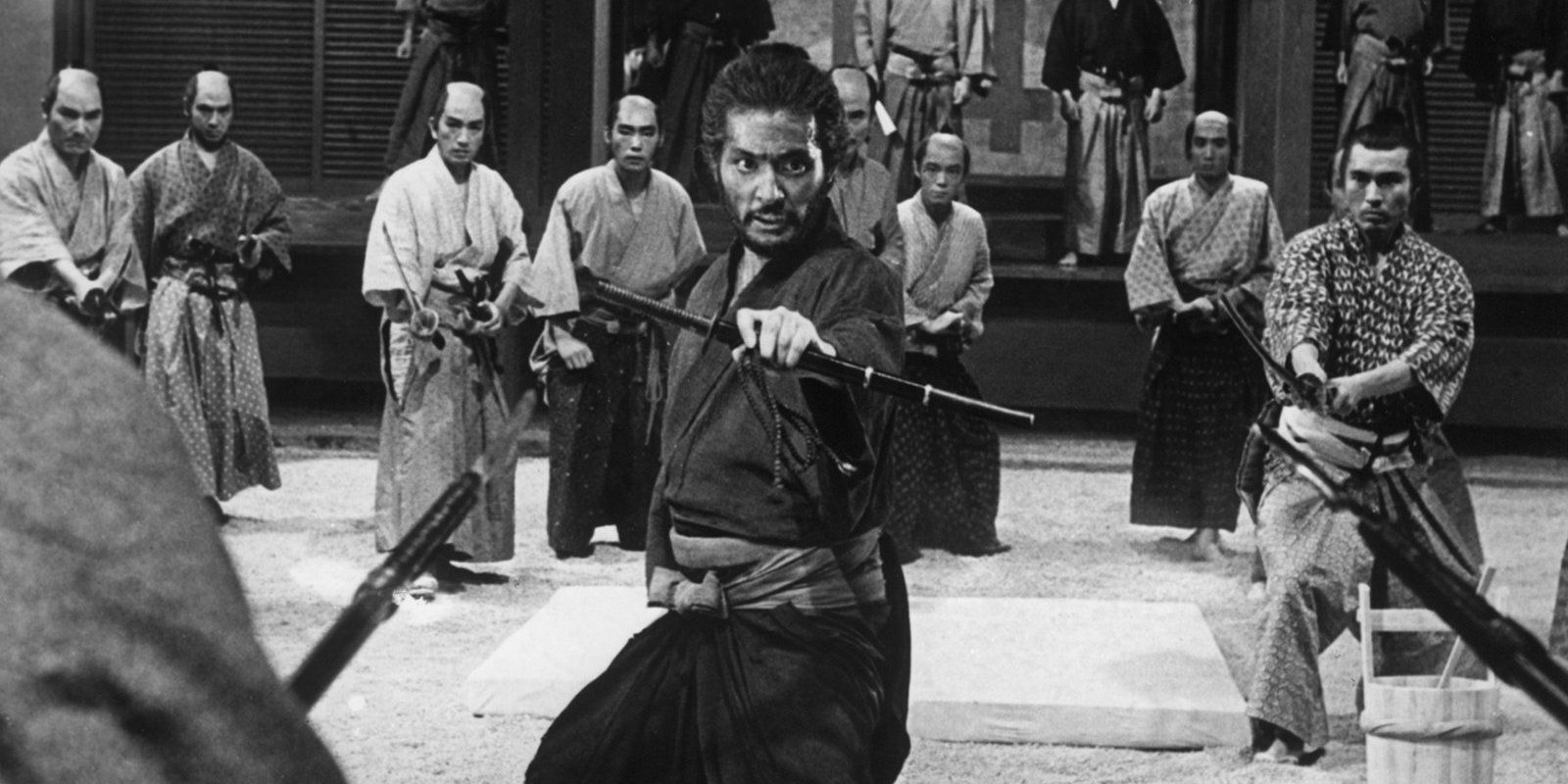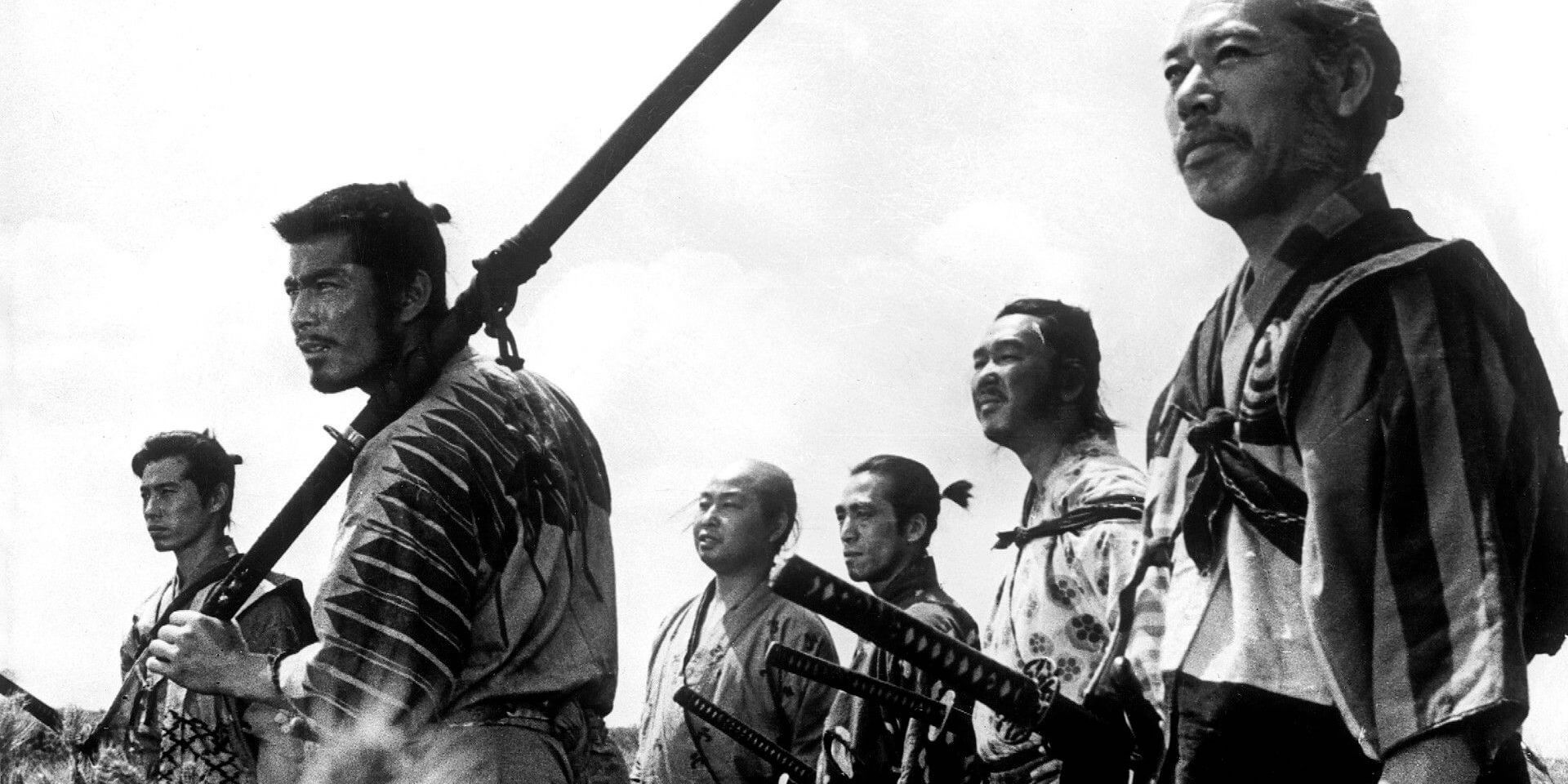Samurai stories have made for some of the most fascinating films in cinema. For decades, they've been at the forefront of pop culture, serving as archetypes for character-driven narratives; they've influenced Western filmmaking and many of the best directors of the 21st century, all the way from Sergio Leone and his Spaghetti Westerns to George Lucas and his Star Wars saga.
With bursts of martial glory, warfare, palace intrigue, and epic swordplay, samurai movies contain something for everyone. Their intricate set designs, elaborate costuming, and portrayals of towering historical figures provide film buffs with more than enough to chew on. Many of them are incredibly barbaric affairs, but the best of the samurai genre possess profound messages of peace and tranquility — even when surrounded by inordinate violence.
7 The Last Samurai (2003) Sweeps With Epic Battle Sequences
Directed by Edward Zwick, The Last Samurai stars Tom Cruise in the titular role of a United States Cavalry Captain whose conflicts bring him into contact with samurai warriors. Set in 19th-century Japan during the Meiji Restoration, the film also features performances from Ken Watanabe, Billy Connolly, Timothy Spall, Tony Goldwyn, and Hiroyuki Sanada.
Achieving an epic sweep of traditional Japanese culture through fantastic production design and thrilling action sequences, The Last Samurai pulls into focus the grandeur of tradition-bound warriors hurling themselves against the modern world. Tom Cruise and Ken Watanabe lead the film with outstanding performances; their characters complement one another in which the savageries of existence are transcended by spiritual devotion.
6 Kill Bill (2003, 2004) Ignites The Genre With Ultraviolence
Written and directed by Quentin Tarantino, Kill Bill stars Uma Thurman in the leading role of "The Bride," a former member of an assassination squad who seeks revenge after her former allies attempt to kill her and her unborn child. Described as "the deadliest woman in the world," she journeys to Japan to obtain a katana from legendary swordsmith Hattori Hanzō — battling Yakuza as she crosses off each entry on her kill list in a roaring rampage of revenge.
Conceived as a homage to samurai cinema, Kill Bill was inspired by the likes of Lady Snowblood (1973) and Yojimbo (1961). Tarantino's tribute is visually striking and remarkably stylish, densely textured with his signature charm, and filled with plenty of blood, guts, and glory. Uma Thurmon's performance as "The Bride" is every bit as sympathetic as it is scary, and she crafts a nuanced samurai-inspired character from a role that could have otherwise seemed slightly archetypal.
5 13 Assassins (2010) Succeeds With Wild Spectacle
A remake of Eiichi Kudo's 1963 film of the same name, 13 Assassins is directed by Takashi Miike. Starring Kōji Yakusho, Takayuki Yamada, Sōsuke Takaoka, Hiroki Matsukata, Kazuki Namioka, and Gorō Inagaki, the film follows a group of assassins who plot to assassinate a murderous leader and thwart his appointment to the Shogunate Council.
Director Miike fashions a reverential film that dedicates itself to delivering everything you'd expect from a samurai movie; 13 Assassins plays like the best of '50s and '60s Japanese cinema. The film soaks itself in red while simultaneously remaining neutral, with shades of gray, white, tan, and black. The finale culminates in a superbly executed 50-minute action sequence, which is as riveting and thrilling as it is inventively shot and plotted.
4 The Twilight Samurai (2002) Leads With A Reluctant Warrior
Written and directed by Yoji Yamada, The Twilight Samurai stars Hiroyuki Sanada as a poor-but-not-destitute, low-ranking samurai who becomes employed as a bureaucrat to care for his family. Leading a content life with his daughters and mother, turbulent times conspire against him at the turn of an unfortunate tide.
Bittersweet, determined, and deeply humane, The Twilight Samurai beautifully captures the end of an era. Director Yamada crafts an eloquent tribute to a man who is bent beneath the weight of his duties, following a father who finds fulfillment in being a father. Rich with economic and social detail, The Twilight Samurai simultaneously confronts the contradictions of political expediency and celebrates them in their purest form.
3 Rashomon (1950) Examines The Nature Of Truth
A psychological thriller directed by Akira Kurosawa, Rashomon stars Toshiro Mifune, Machiko Kyō, Masayuki Mori, and Takashi Shimura. The film follows four people who provide subjective, alternative, contradictory versions of the same incident after a man is murdered and his wife is sexually assaulted.
Featuring fantastic performances and an innovative narrative structure, Rashomon reaches new heights for Akira Kurosawa. The film pushes the boundaries of cinema to redefine storytelling, implying that there is no real world that exists — only an indifferent universe where people invest their feelings and perspectives. Kurosawa crafts a clever tale of truth and deception to deliver a fascinating exploration of the human condition.
2 Harakiri (1962) Questions Institutionalized Loyalty
Directed by Masaki Kobayashi, Harakiri takes place during the Tokugawa period in Japan, between 1619 and 1630. The film follows the story of the rōnin Hanshirō Tsugumo, played by Tatsuya Nakadai, who requests to commit seppuku before an audience of samurai within the manor of a local feudal lord.
The beauty of Harakiri lies in director Kobayashi’s prevailing spirit and unyielding firmness of conception. Offset by a non-evasive concern for cinematic values, the film moves at a steady, hypnotic momentum and plays like a masterfully constructed game of chess; with carefully crafted camerawork and sensationally engaging storytelling, Harakiri offers a compelling look into the facade of institutionalized authority and loyalty.
1 Seven Samurai (1954) Soars With Spectacle & Suspense
Directed, co-written, and edited by Akira Kurosawa, Seven Samurai takes place in 1586 during the Sengoku period of Japanese history. The film follows the story of a village of farmers who hire seven samurai to combat bandits who steal their crops.
Exceptionally engaging and emotionally engrossing, Seven Samurai is an artistically and technically brilliant piece of cinema. Kurosawa's kinetic camerawork keeps the action sizzling with vigor and wit, synthesizing the sensibilities of Japanese culture and tradition with the American/Western cinematic narrative to craft a timeless classic. The film presents itself with such theatrical relish and flair; its energy flashes out of the screen like a steel sword. Seven Samurai is an undisputed masterpiece and one of the most influential films of all time.

